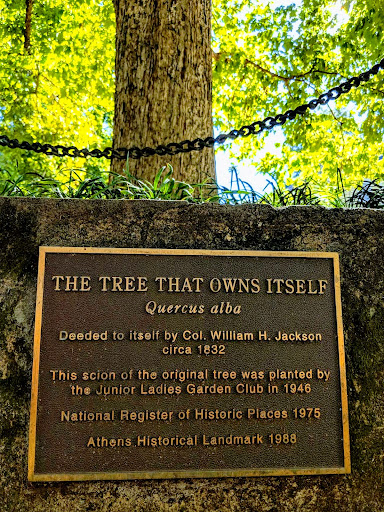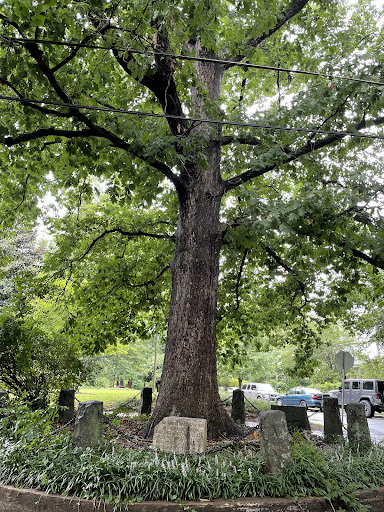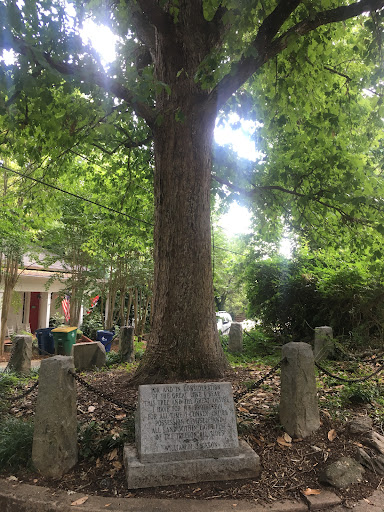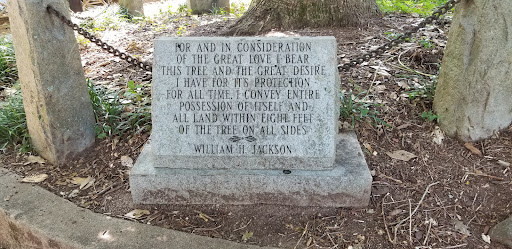Tree That Owns Itself things to do, attractions, restaurants, events info and trip planning
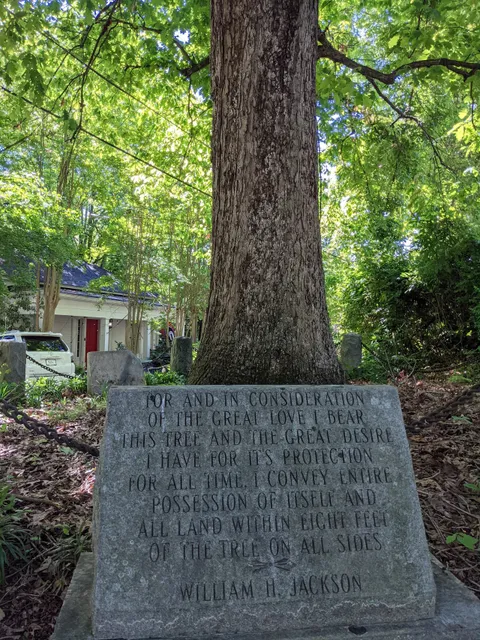
Basic Info
Tree That Owns Itself
277 S Finley St, Athens, GA 30605
4.8(534)
Open until 12:00 AM
Save
spot
spot
Ratings & Description
Info
The Tree That Owns Itself is a white oak tree that, according to legend, has legal ownership of itself and of all land within eight feet of its base. Also known as the Jackson Oak, the tree is at the corner of South Finley and Dearing Streets in Athens, Georgia, US.
Cultural
Scenic
Family friendly
Off the beaten path
attractions: Morton Theatre, Terry College of Business at the University of Georgia, TRR Cobb House, Antiques & Jewels, Georgian Hall, K. A. Artist Shop, Town & Gown Players, Latin American Ethnobotanical Garden, Student Accounts, restaurants: Ideal Bagel, Encounter Cafe, Daydreamer Cafe, Shokitini, Clocked!Diner, bb.q Chicken Athens, Last Resort Grill, Trappeze Pub, Chuck's Fish Athens, Sister Louisa's Church - Athens, local businesses: Starlite Showroom, Washington Square Studio, Ciné, Epiphany Athens, Georgia Heights, Cheeky Peach, Athfest Inc, Fan Outfitters Athens, Musician's Warehouse, Cosmic Delivery
 Learn more insights from Wanderboat AI.
Learn more insights from Wanderboat AI.Website
visitathensga.com
Open hoursSee all hours
FriOpen 24 hoursOpen
Plan your stay

Pet-friendly Hotels in Athens-Clarke County Unified Government
Find a cozy hotel nearby and make it a full experience.

Affordable Hotels in Athens-Clarke County Unified Government
Find a cozy hotel nearby and make it a full experience.

The Coolest Hotels You Haven't Heard Of (Yet)
Find a cozy hotel nearby and make it a full experience.

Trending Stays Worth the Hype in Athens-Clarke County Unified Government
Find a cozy hotel nearby and make it a full experience.
Reviews
Live events

Athens, GA Murder Mystery: Solve the case!
Thu, Jan 1 • 12:00 AM
265 College Ave, Athens, GA 30603, USA, 30603
View details

Heated Rivalry Dance Party
Sat, Jan 17 • 9:00 PM
227 West Dougherty st., Athens, GA 30601
View details

Jack Wharff Band - Solon Holt
Fri, Jan 30 • 7:00 PM
285 West Washington St Athens, GA 30601
View details
Nearby attractions of Tree That Owns Itself
Morton Theatre
Terry College of Business at the University of Georgia
TRR Cobb House
Antiques & Jewels
Georgian Hall
K. A. Artist Shop
Town & Gown Players
Latin American Ethnobotanical Garden
Student Accounts
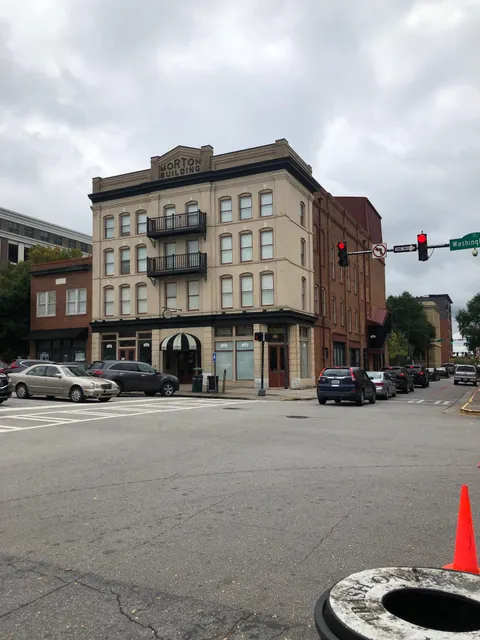
Morton Theatre
4.7
(131)
Open 24 hours
Click for details
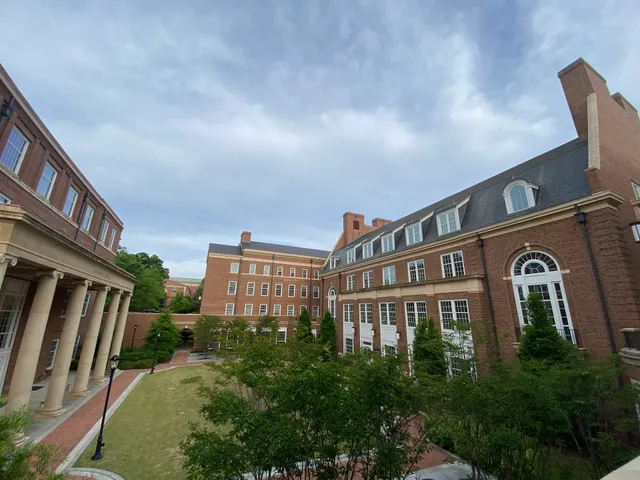
Terry College of Business at the University of Georgia
5.0
(12)
Open 24 hours
Click for details
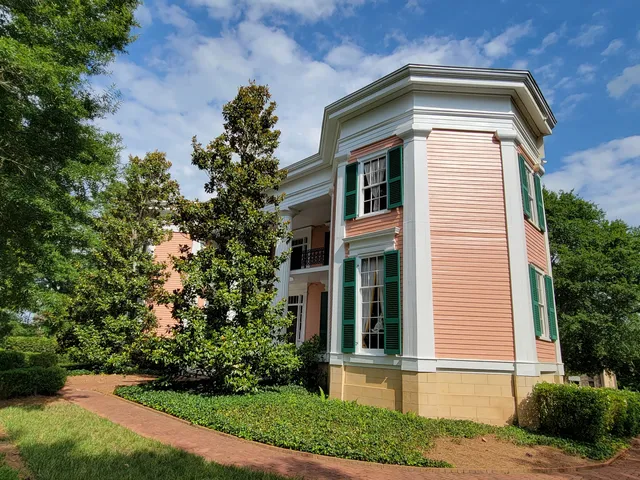
TRR Cobb House
4.5
(20)
Closed
Click for details
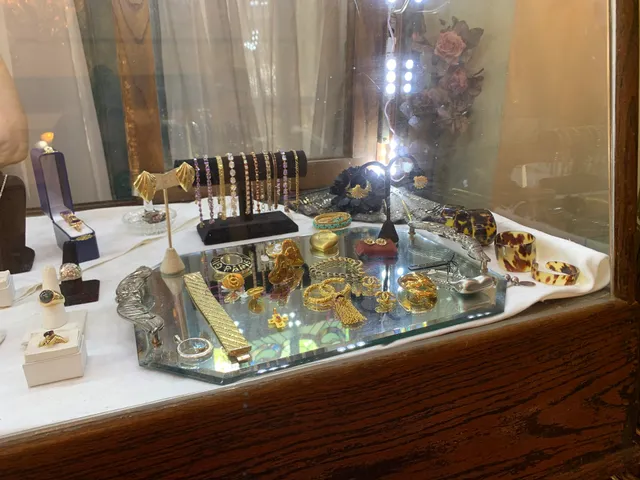
Antiques & Jewels
3.9
(18)
Closed
Click for details
Nearby restaurants of Tree That Owns Itself
Ideal Bagel
Encounter Cafe
Daydreamer Cafe
Shokitini
Clocked!Diner
bb.q Chicken Athens
Last Resort Grill
Trappeze Pub
Chuck's Fish Athens
Sister Louisa's Church - Athens

Ideal Bagel
4.7
(240)
$
Closed
Click for details

Encounter Cafe
5.0
(24)
$
Open until 9:00 PM
Click for details

Daydreamer Cafe
4.1
(30)
$
Closed
Click for details

Shokitini
4.5
(452)
$$
Open until 11:30 PM
Click for details
Nearby local services of Tree That Owns Itself
Starlite Showroom
Washington Square Studio
Ciné
Epiphany Athens
Georgia Heights
Cheeky Peach
Athfest Inc
Fan Outfitters Athens
Musician's Warehouse
Cosmic Delivery

Starlite Showroom
4.8
(35)
Click for details

Washington Square Studio
4.8
(63)
Click for details

Ciné
4.8
(203)
Click for details
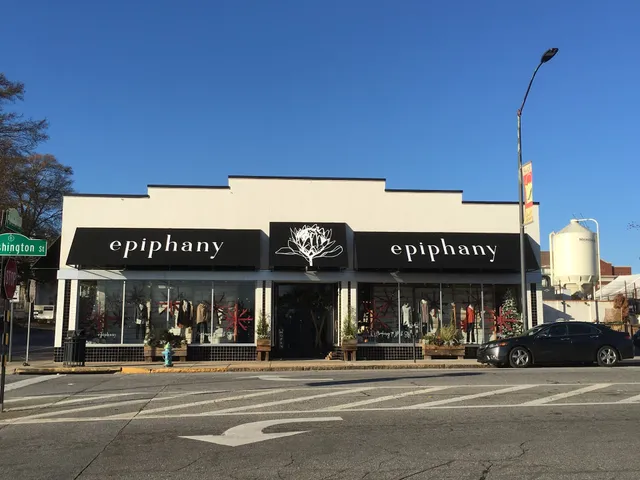
Epiphany Athens
4.8
(40)
Click for details


